#Czech Roma
Text
Av manca chajori,
Av manca, chajori, odoj, kaj miri daj beshel,
k'amende o Roma sako rat paramisa phenen.
Av manca, ma dara, me tut na mukhava,
bibacht ani ladz tuke na kerava.
Sar o Roma dikhena, hoj me tut anav,
takoj o lavuti latcharena.
Amen na same tchore, te nane kaj te sovel,
pre dvora hin phuri pendech - o prajta zelene,
odoj tuke than kerava, sar avla rupuni rat,
tel tute latcharava miro jekhfeder gad.
A te tut ela shil, vitchinav o nebos,
kaj tut te zautcharel.
Ko rashaj na dzaha - jekhtan' amen dela
amaro gulo Del.
Te manca aveha, te manca dziveha,
kamaha pes amen
sar odi kali phuv le kale mareha.
2 notes
·
View notes
Text

Hilda Laníková, née Ondrášová, with her cousin. Hilda was born to a Romani family in what was then Czechoslovakia, and lived in the village of Tvorovice until she was six years old. in 1942, Hilda's father, Jan, was arrested and taken to Auschwitz, where he was murdered. Months after, the rest of Hilda' family was taken to the Gypsy Camp at Hodonín u Kunštátu. Eventually, the camp closed, and the remaining prisoners were to be taken to Auschwitz, but Hilda's family was sick with typhoid and were allowed to remain behind. Her six siblings who were not sick were transported to Auschwitz, where they were murdered. The surviving members of the Ondráš family were declared non-Roma and released. After their release, the family tried to escape to Slovakia, but they were detained at the border. They managed to survive the rest of the war in Tvorovice with the help of their neighbors. From Roma Testimonies.
#romani#roma#romové#czech republic#česká republika#česko#česky#articles#samudaripen tw#porajmos tw#holocaust remembrance day#holocaust
25 notes
·
View notes
Text
mňau 🤨

#being born in another country then moving to america makes me feel so different compared to the people around me#90%#of ppl here are either born and raised in this city or in the military#and i can tell.#does that make sense?#i can tell that im different than them#ive had people talk about how russia killed my people#which isnt true??#czechia isnt a post soviet country.#if you payed attention in history then you'd understand that germany took our land and killed czechoslovakians before czechia and slovakia#seperated#but you dont pay attention so youre over here asking if i know russian bc im slavic#no! i dont! 😁#and then seeing people describe their style as boho and bohemian#oh my fucking god#i lose my mind every time.#not only was it first used to degrade the roma people in france because they thought they were coming from bohemia#but now any time i say i'm czech bohemian and not czech moravian#people act like im crazy#like ok die!!! 😸#i just think its crazy how insensitive people around me are to immigrants#i know i'm a dual citizen and i feel like that shouldnt matter bc its my business#but i have people telling me im an illegal immigrant like oh!!! no????#and then my ex boyfriend would constantly make fun of me saying my country wasnt real and i was just russian#which is in no way true!#i was born in the pardubice region in czechia 😸#and my country is real!#czechia was around during the roman empire#české knížectví was a monarchy!#kats chattin shit
7 notes
·
View notes
Text
0 notes
Text
1 note
·
View note
Text
There's a lot of anti-Romani racism in Dracula, and today's entry marks the start of it.
So I thought it might be a good opportunity to highlight some organisations that are working to promote Roma rights, and some ways, alongside donating, that you might be able to support them.
The European Roma Rights Centre carries out strategic litigation to support Roma rights, as well as doing advocacy and research. You can sign up to volunteer for them here; one volunteer-run project currently live is called Challenging Digital Antigypsyism, and focuses on identifying and reporting hate speech on social media platforms.
On a similar theme, Minority Rights Group International has a campaign toolkit on countering cyberhate against Roma. The focus of the campaign is Bulgaria, Croatia, Czech Republic, Hungary and Slovakia.
In the UK, Friends, Families and Travellers works to end racism and discrimination against Gypsy, Roma and Traveller people and to protect the right to pursue a nomadic way of life. If you're in the UK, you can ask your MP to sign their pledge card. And if you witness discriminatory comments in politics, you can report that here.
The Roma Support Group, based in London, works with Eastern European Roma refugees and migrants. They have a number of volunteer roles for people with regular time to offer.
#dracula daily#feel free to reblog with suggestions of other organisations and campaigns#let's turn Bram Stoker's prejudice into something positive
8K notes
·
View notes
Text

Participants of the Khamoro World Roma Festival dance through the historical center of Prague, Czech Republic, June 3, 2022.
REUTERS/David W Cerny
1 note
·
View note
Photo
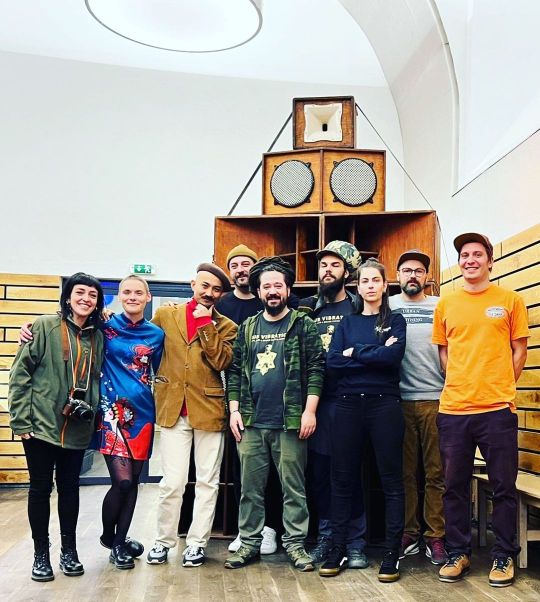
My surprise mission & sessions was completed. It was really pleasure to spend a great time with great person’s like _______ @_jayah_ @praha_10 @a3bor.ph @loic_deniro @michael_exodus_ @dread.atthecontrols Ras ikel & Dora #dubvibration family @rootsnculturepromotion @raggaultrassoundsystem Special thanks for my brother from another mother man like Loic san also Micheal & Roberta & Tina, I love your guys so much 🥰 Yes I ya, It was such a great session feeling like come back to home like real family vibration especially @michael_exodus_ start to play the his production. What’s a magic moments begging to the end. Big up yourself brother 🔥 Give thanks for all Prague people who passed by this wonderful movements. Young Selektah Selector one heart man @shakk__attack family man like Sevak, loic etc… nuff respect 🙏🙏🙏 I wanna say guidance and protection more itection until next time my lions and lioness. Nuff love and blessing family. Rasta Salute 🫡🫡🫡 #michealexodus #dubomaticrecords #roma #loicdeniro #france #yugotaguchi #yugodtaguchi #jahya #lukas #prague #czech #raggaultrassoundsystem #reggae #soundsystem #soundsystemculture #love #family #community (Prague 10) https://www.instagram.com/p/Cji_VZwsfnR/?igshid=NGJjMDIxMWI=
#dubvibration#michealexodus#dubomaticrecords#roma#loicdeniro#france#yugotaguchi#yugodtaguchi#jahya#lukas#prague#czech#raggaultrassoundsystem#reggae#soundsystem#soundsystemculture#love#family#community
0 notes
Text
When my father found out I am gay, he beat me brutally, but today I help other LGBT+ Romani people
Patrik Kotlár's coming out was not easy, encumbered as it was by discrimination and his own family's incomprehension. Instead of giving up, though, he decided to overcome those obstacles and use his experience to aid others.
He established the nonprofit organization Romany Art Workshop 13 years ago, offering arts workshops, educational programs to develop community activism and leadership, and sports activities in Tanvald, Czech Republic. He also collaborates with the ARA ART organization.
In November 2023 the two organizations opened a community club in Jablonec nad Nisou and will open another in Frýdlant. These clubs will become places for members of the LGBT+ minority to meet each other and give each other support, as well as places for Romani people from excluded localities to gather.
Patrik (36) is inspiring to those who want to overcome such obstacles themselves and become the voices of change. “As a schoolchild I myself was not aware of my sexual orientation. My schoolmates told me what they thought, though,” he starts his story.
The insults he endured were unpleasant and he believed his friends were absolutely crazy. He did not begin to realize what his sexual orientation was until the age of 16, as a high school student studying social work.
He did not decide to come out until two years later, when he began his first partner relationship. He met his then-boyfriend on a train.
It never even occurred to him that anybody around him might take a negative view of his being gay. “While I had been raised my whole life in the Christian spirit of a man belonging to a woman, I never worried about that for myself. I accepted my orientation as a fact and I never thought that it was supposed to be wrong,” he admits.
He began visiting a gay bar in Liberec after fully realizing and admitting his orientation. He and his friends enjoyed going to the disco there.
One day, however, a group of Romani people who knew his father saw Patrik leaving that bar and immediately informed his father. “Dad was unable to stomach it and he beat me brutally for it,” Patrik says, adding that it is still difficult for him to talk about what happened.
Being outed to his father by others was the beginning of the end for him, and he found himself in total isolation, cut off from contact with most of his family and former friends. The suddenness of the situation also had a negative impact on his studies because he was forced to drop out just before graduation.
“I was afraid my father might even kill me unless I left Liberec,” he says. He was on the run from his father’s aggression for more than a year, hiding in various locations all over the country, but his father always managed to track him down.
“Whether I hid in Plzeň, Brno, Pardubice or the capital, my father always found out where I was at the time. It was exhausting, I lived in constant fear that he would find me and harm me. In his eyes I had caused the entire family unreal shame. However, nobody else in my family reproached me for my orientation and accepted me without any problems,” he said.
A childhood without a mother
When Patrik speaks of his family, he does not mean his mother, because he got no support from her as he was growing up. His mother abandoned the family when he was nine.
Patrik says his mother was an alcoholic and, after disagreements with his father, who wanted her to stop drinking, she always left the family for some time before eventually returning. She never gave up drinking.
One day she left for good and the family never saw her alive again. “My childhood was sad without my mother, to this day I say I basically never had a childhood,” Patrik recalls.
“Dad was older when we were born, and he raised us with a strict hand. As children we were never allowed to go anywhere besides school and music lessons, we had no personal space,” he reminisces.
Patrik never managed to re-establish contact with his mother. He heard from acquaintances more than once that she was homeless in Košice, Slovakia, and another time that she was in Bratislava, but when he and his sister went there, they were unable to find her.
One day an older sibling who had long since flown the nest let them know they needed to meet in Brno and immediately head for Slovakia because their mother was dying and wanted to see everybody one last time. They did not hesitate and set off after her at once.
Patrik’s father’s health was also not the best. Since they had last been in contact he had developed symptoms of Alzheimer’s and other diseases.
“He asked my sister to send a message to me to come home and that he wouldn’t do anything bad to me. I obeyed and our relationship actually improved. It took a while for him to reconcile himself to my orientation and get used to my boyfriend at the time, but he didn’t shout abuse at either of us or attempt to harm us in any way. Ultimately my sister, my then-boyfriend and I took care of my father in his most difficult moments. He died nine years ago today,” he says.
Aiding others is the priority
His personal experience of discrimination in his family led Patrik to establish the Romany Art Workshop nonprofit organization 13 years ago. The organization concentrates on aiding adults and children grappling with social exclusion.
The NGO prepares primary school pupils to apply to high school, offers recreational activities and summer camps, and holds arts workshops which will be transformed this year into an academy for talented youth. The academy will concentrate on the arts and music and its instruction will be comparable to that of an arts school at the primary level.
The main aim of the NGO, however, is to lead local Romani people to emancipate themselves with the aid of community activism and leadership training. Patrik is convinced it is important to show Romani youth the opportunities that exist to engage in public affairs and to create new activities in the places where they live.
Patrik says he believes individuals can contribute to the better integration of Roma into society through such engagement. He himself is an example.
Before establishing the nonprofit, Patrik led Bengale Manusha, a professional, three-generational ensemble, for two years. On the sidelines, his NGO is working with the LGBT+ minority in the Liberec Region, the members of which are turning to them more and more often.
The decision to fully dedicate the organization to the subject was made after Patrik learned of a tragic event – one such 17-year-old Romani youth took his own life because nobody understood him. “I realized that even though we have personal experience with this, we lack deeper expertise,” he admits.
For that reason, he decided to collaborate with the ARA ART organization, which has long concentrated on the LGBT+ subject. Thanks to their collaboration, they were able to open a community club in Jablonec nad Nisou in November, where their volunteers had previously been working.
People from neighboring towns like Tanvald or Železný Brod seek out their services. Soon a club will also open in Frýdlant.
As in Jablonec, that club will provide expert counselling to LGBT+ Romani people. A psychotherapist is also available there to aid clients not just with coming out, but to also answer parents’ questions when they want to learn more about the LGBT+ minority.
The organizations currently have 200 clients, 50 of whom are LGBT+. “The community center is not intended just for LGBT+ people, but also for Romani people from socially disadvantaged environments. We provide various recreational activities and because they come here regularly, we believe they like it here,” Patrik boasts, adding that in addition they are endeavoring to build up mutual dialogue in a natural format about overcoming obstacles and creating a safe space for all.
“I am surprised by how the times are gradually changing and how the Roma are more open to same-sex couples or to people who are transitioning from male to female and vice versa. What has contributed to this are the different reality shows with gay people as the main protagonists, and we know figures like Jan Bendig. He speaks absolutely openly about his orientation and thousands of Roma from all generations follow him,” Kotlár believes.
Nevertheless, he does perceive differences between the various towns. In Jablonec nad Nisou, which is approximately 14 km from Liberec, Romani people are not disturbed to see two men dancing together during a social event.
In Liberec, on the other hand, there are many gay people who are still in the closet because they have the feeling that those around them are not open toward them. “We will do our best to change that for the better, step by step,” Patrik concludes optimistically.
31 notes
·
View notes
Text
Baloh, a Roma woman, was shipped off to the prison-like facility alongside other mostly Roma families, while tens of thousands of other Ukrainian refugees found places to stay in private homes and dormitories in the Czech Republic. “It was like a prison. It was bad. I was afraid there, there were so many people, many scary people,” she told CNN. Hers is a common story, according to NGOs and activists. “Roma refugees are automatically placed into non-standard accommodation,” says Patrik Priesol, head of the Ukraine program at Romodrom, a Czech NGO focused on Roma rights and advocacy. “It is very saddening and I am not afraid to say it amounts to institutional racism and segregation.”
#romani#roma#Роми#ukraine#ukraina#Україна#czech republic#russian ukrainian war#articles#česká republika#česko#czechia#česky
75 notes
·
View notes
Text
ELENA GOROLOVA // ACTIVIST
“She is a Czech human rights defender. She works as a social worker in Ostrava and is of Roma origins. At the age of 21, she was forcibly sterilized in hospital after giving birth to her second son. She had hoped to have another child and had not given her informed consent to the procedure. In the year 2005 Elena was one of the 87 Czech women complaining of being forcibly sterilized. Since then, she has campaigned against forced sterilization and discrimination against Roma women in Czechia and advocating for redress and awareness of forced sterilizations. She is the spokesperson for the Group of Women Harmed by Forced Sterilization and a member of Czech organization Vzájemné soužití (Life Together).”
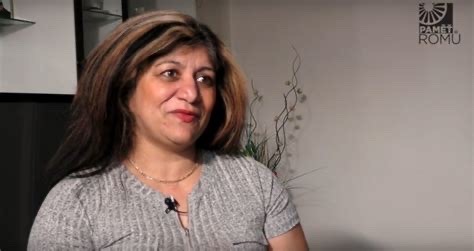
72 notes
·
View notes
Text
“Peter” or “Pietro”?
I was contemplating Peter’s name, along with its origins. In the comics, he’s originally Pietro which is the Italian version. But both variants derive from the Greek word Petros, meaning “stone” or “rock”, which I find ironic considering Peter is opposite to that.
It got me thinking that whilst it’s normal for people to have foreign names contrary to their nationality, Peter is originally from Sokovia. Although it’s a fictitious place, it’s in between Slovakia and the Czech Republic, which are very much real countries. Meaning it’d be apart of the West Slavs. So this information lead me down a rabbit hole of looking through translations of Peter’s name in languages that relate to him.
Czech: Petr, Péťa (diminutive)
Slovak: Peter, Peťo
Hungarian: Péter, Petya, Peti (diminutive).
I found that Hungarian is the second most spoken mother tongue in Slovakia (9.4% of the population) so I researched that as well.
Both his biological parents (Magda & Erik) were born in Germany, so I searched up the German translation but it also came up with just Peter.
I tried digging up Wanda’s name too, but it appears that it’s very one-dimensional. I couldn’t find any different versions of it, but I did discover its Polish in origin. Of course, I hunted down the Polish translation for Peter’s name in contrast to hers. Interestingly, I discovered there was quite the variety.
Polish: Piotr. Diminutives/hypocoristics include Piotrek, Piotruś, and Piotrunio. (Piotr has several name days in Poland)
Erik (in the movie-verse, as far as i’m concerned) lived in Poland when he formed a new family and even spoke the language as well. Despite it not being his mother tongue, I reckon he would affectionately call Peter “Piotr” under certain circumstances. I like to think so at least.
Amongst all the research I did though, the most challenging was finding Romani translations. I know it’s apart of Peter’s identity, so I wanted to include it. However, I came up short. Unfortunately, it’s not easy to find Romani translations like most other languages. It became really frustrating too since my research kept leading me to Romanian or Roman, even when I made sure the spelling was correct. I found myself disappointed with this dead-end but it also taught me how underrepresented Roma is and how we should keep that in mind.
Nonetheless, I still did some more research on it even if I couldn’t find translations to Peter’s name. I’m aware that the Romani language is diverse, and so I stumbled upon Carpathian Romani. Also known as Central Romani and Romungro Romani. It also happens to be native to Slovakia and the Czech Republic, which we know as the countries surrounding his birthplace.
Apparently, nearly all Romani speakers are multilingual, so I find it credible that Peter would be able to speak this particular dialect, along with Slovakian or Czech (in theory). Whilst I couldn’t find a new variant of “Peter” or “Petros” for this language, I at least have some deeper understanding of his connection to it.
In conclusion; the discussion about whether “Peter” or “Pietro” is better doesn’t really matter, since they’re essentially the same name. Besides, Peter being called all types of versions of the name by different people in his personal circle sounds very appealing me. With his friends, he’s Peter. For Wanda, he’s Pietro. And potentially he’s Piotr for Erik.
25 notes
·
View notes
Note
Tbh I feel like some Europeans are trying to use BIPOC or US race politics because they don't want to confront that maybe, just maybe they're actually racists, and if they'd have to actually only focus on Europe instead of scapegoating the US, they'd have to look in the mirror. "Czech women are all whores. It's in their blood." "I can't wait for Ukraininan women to come here as refugees, much cheaper than local women, and more docile." "G**sies are all thieves and swindlers." And other a lot more graphic, and disgusting comments would otherwise force them to confront that they're just racists, and that those aren't jokes, and that it's actually fucking sick, and they're perpetuating historical racism and exploitation even today. This isn't even just a right problem, some people on the left have the exact same opinions, they'll just package it in a more wannabe progressive wrapping.
Just from what I've seen, Europeans might start talking about racism, but then it's only ever in relation to the US. They basically only admit to things that happen in the US also happening in Europe, but even then they'll say it in such a way that European racism is less bad. X happened in the US, racism bad, if it didn't happen in the US no need to think about it here. "What about the way Europeans treat Roma and Sinti?" *crickets* That's not racism, that's just jokes. *writes an entire tangent about how G**psies (Roma and Sinti) are subhumans and are a plight on the honest people.* -Hyperbole... not really, but yeah.
Tbh, I actually feel a lot of countries do that. The US is more aware of racial issues. Then every other country in and outside the West, immediately shoves their skeletons in the closet and pretend that not acknowledging their own racism, and putting all the blame on the US means they can't be racist.
--
53 notes
·
View notes
Text
quieter movies
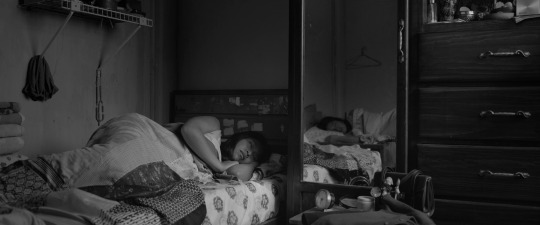
pather panchali (1955), bengali

valerie and her week of wonders (1960), czech
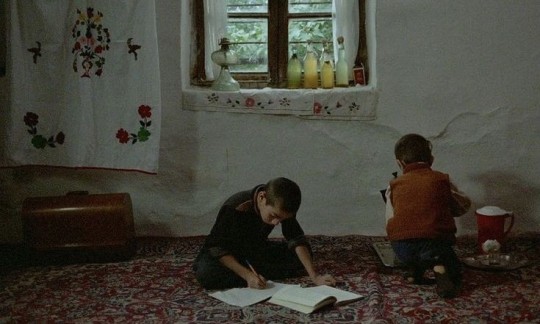
where is the friend's house (1987), persian
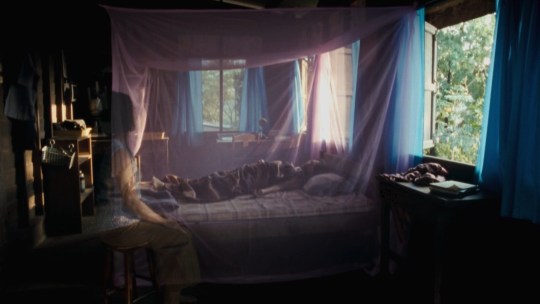
the scent of green papaya (1993), vietnamese

in the mood for love (2000), cantonese
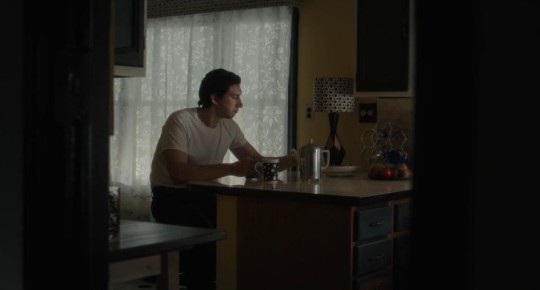
uncle boonmee who can recall his past lives (2010), thai
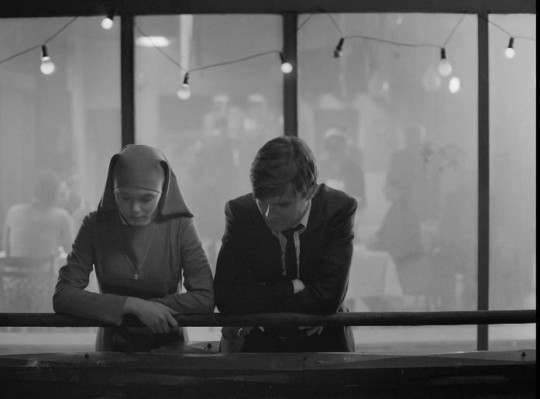
ida (2013), polish
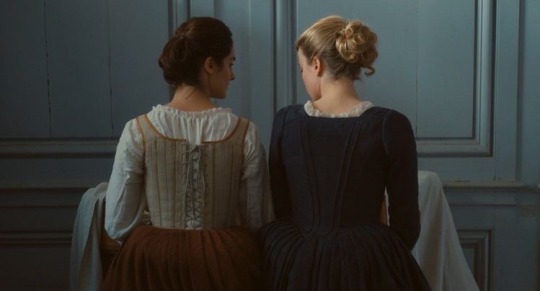
paterson (2016), english

roma (2018), spanish

portrait of a lady on fire (2019), french
#pather panchali#valerie and her week of wonders#the scent of green papaya#in the mood for love#where is the friend's house#uncle boonmee who can recall his past lives#ida#paterson#roma#portrait of a lady on fire#parallels#film blog#film stills#film screenshots
141 notes
·
View notes